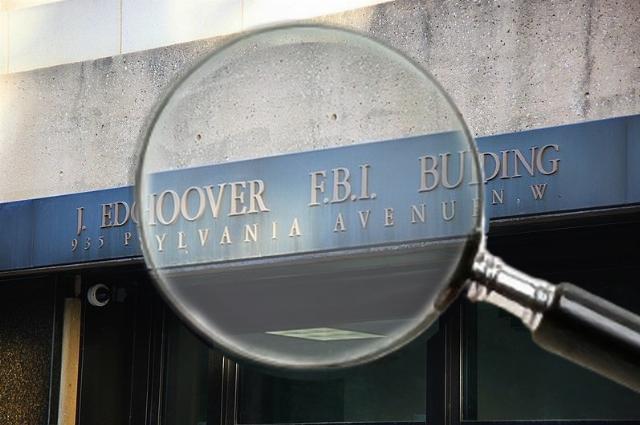The 2024 landmark election has concluded with a resounding victory for the Grand Old Party. With the newly acquired Republican majority in Congress and Donald Trump as President-elect, the United States is facing a pivotal moment that promises to bring long-awaited changes.
Interference Anxiety
In the months and days leading up to the election, the outcome was far from certain. Polls showed a dead heat between Trump and Harris, with only a marginal difference, and even prominent pundits were unable to predict a winner. Having experienced election interference controversies in 2016 and 2020, Americans were fearful that this year’s voting process would be marred by similar issues. This anxiety was further fueled by numerous statements from high-ranking politicians and government agencies alleging attempts to influence the presidential election.
Back in May, Sen. Mark Warner (D-VA), chairman of the Senate Intelligence Committee, claimed that the 2024 election would likely be the most targeted by malicious foreign actors in American history. He warned that our adversaries would be increasingly aggressive and sophisticated in their influence operations.
Despite the committee hearing’s broad examination of foreign actors’ potential election interference, the discussion was largely focused on Russia’s efforts. Such reasoning raises questions as the 2016 allegations on Russia-Trump connections turned out to be baseless. Furthermore, a thorough investigation on Putin’s meddling found there was little or no real effect. Considering Russia’s significantly diminished capabilities following its troubled invasion of Ukraine and the technological and financial limitations imposed by sanctions, it’s possible that Russia’s potential is overestimated.
Later, the Federal Bureau of Investigation (FBI) together with the Office of the Director of National Intelligence (ODNI) issued numerous statements about suspicious online activity aimed at soiling the Democrat party’s presidential effort. In September and October those claims concerned controversial videos soiling particular candidates and raising issues like illegal voting. Specifically, they accused Tim Walz of sexual misconduct and showed non-citizens casting early votes. According to authorities, the content used either fabricated information or deepfake technologies. The videos allegedly originated from Russia-linked actors.
A day before the general election, November 4, a joint statement from the FBI, and the ODNI, and the Cybersecurity and Infrastructure Security Agency (CISA) reported on detecting influence operations aimed to undermine public confidence in voting integrity. Just like months before, Russia was declared the most active threat.
One-Sided Threat
Now, when the pivotal election has resulted in a win for the country-saving force, the consistent accusations of meddling look more unusual than before. Certainly, these warnings played an important role hours before the decisive voting and encouraged people to go to polling places and cast a vote in person. However, there is a strong feeling that something is wrong.
Suddenly, it raises concerns about why government agencies doubled down on interference allegations? Why does the FBI and others focus on Russia’s efforts, paying less attention to other dangerous actors like China and Iran? These adversaries of ours are actually mentioned in numerous reports, but still their activities seem to be lacking thorough investigation.
On November 3, Tulsi Gabbard (now officially a Republican), accused the FBI of covering the Iranian interference efforts—a prominent GOP female politician claims Tehran attempted to undermine Trump’s campaign by cyber and information operations, and the responsible American agencies did insufficient work (if any) to investigate.
This year, the FBI, top Democrat lawmakers, and mainstream media sounded the alarm over Russia’s meddling, often exaggerating its significance while devoting less attention to equally pressing threats from other countries. One possible explanation for this disparity is that the controversy surrounding Russian interference, which has been extensively discussed since 2016, has become a more familiar and tangible concern than the less visible efforts of China and Iran. It’s possible that the widespread perception that Russia’s malicious activities are intended to support Trump has become an ingrained narrative, an idea which has been refuted many times now.
What the Meddling Accusations Really Hide
One might think that constant warnings and reports on interference are not meant to strengthen the election integrity. It looks as if somebody relentlessly wants us, the people, to believe the voting could have been compromised because of foreign actors’ activities. In that case, those who spread the “meddled election” narrative might mean the outcome of the vote is wrong and the winner is wrong too.
The 2024 Democrat campaign proved to be too aggressive toward both the GOP standard-bearer and his supporters. Recall the terrible “Nazi” and “garbage” rhetoric that is openly offensive and discriminatory. Ironically, that all comes from the party claiming it is dedicated to Diversity, Equity, and Inclusion ideas. Harris’s overwhelming confidence in success, with unbelievably massive financial capabilities of $1 billion received donations, endorsements from top-tier artists as well as media and tech corporations, and still the Dems suffered a devastating defeat.
After having created a virtual sense of landslide victory among supporters, the Democrats failed to change the reality, where at least half the country voted Republican. There is a feeling that Harris’s HQ was fooled by its own rhetoric, underestimating the level of support for Trump. However, when reality defies expectations, it can be difficult to accept what you have been relentlessly denying. Maybe this is the real reason the Democrat-supportive FBI and other agencies made consistent claims on the election interference to lay the groundwork for one more explanation why the things went wrong and the voting proved America is tired of that kind of BLUE and now has drastically turned RED.

Image: Tim Evanson, CC BY-SA 2.0, via Wikimedia Commons, unaltered.
Source link

